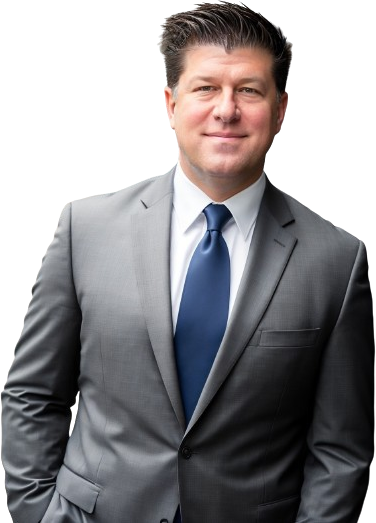
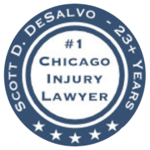

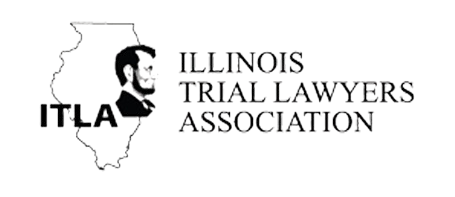
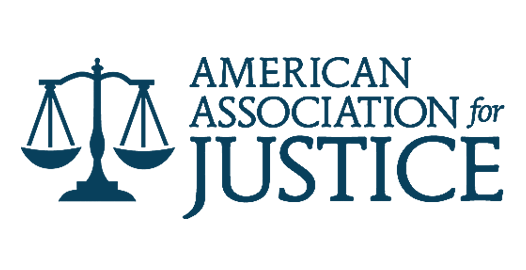
Last year, I got a call that still haunts me.
A widow from Lincoln Park was calling about her husband. He'd been killed in a car accident on Lake Shore Drive near the Oak Street intersection. A drunk driver ran a red light and hit him head-on. He died instantly.
She had two young kids. A mortgage. Bills piling up. And absolutely no idea how she was going to provide for her family without her husband's income.
But here's the part that made me angry: the drunk driver's insurance company had already called her. Less than a week after her husband's funeral. They offered her a "quick settlement" that wouldn't even cover the funeral expenses, let alone support her family for years to come.
They were betting she was too grief-stricken to think clearly. Too overwhelmed to call a lawyer. Too desperate to say no.
That case reminded me why I became a wrongful death lawyer in Chicago. Because when families lose someone they love due to another person's negligence, they deserve justice. They deserve compassion. And they deserve an advocate who will fight like hell to secure their financial future.
If you've lost a loved one due to someone else's negligence anywhere in Chicago, you're facing the worst thing that can happen to a family. Beyond the grief—which is overwhelming—you're probably dealing with funeral expenses you weren't expecting. Lost income that supported your household. Medical bills from before the death. And terrifying uncertainty about your family's future.
Whether your loved one died in a car crash on the Kennedy Expressway, from medical malpractice at a Chicago hospital, in a workplace accident, or due to any other form of negligence, Illinois law gives you the right to hold the responsible parties accountable.
I've helped countless families throughout Cook County seek justice and compensation after losing loved ones. I understand the devastating impact. I know how to navigate these complex legal matters with compassion and expertise.
Here's my promise to you: you don't pay a penny out of pocket. You don't pay me unless we win. And you can call me any time—literally any time, day or night, weekends, holidays—I don't care. When you're facing the worst time of your life, I'm here.
Let me walk you through what you need to know about wrongful death cases in Chicago. No legal jargon. No BS. Just straight talk about your rights and how to protect them during the most difficult time of your life.

Here's what wrongful death means in Illinois: when someone dies because of another person's negligence, recklessness, or intentional actions, the family can pursue legal action.
These are civil cases—separate from any criminal charges. Even if the person who killed your loved one goes to jail, that doesn't compensate your family. Criminal cases punish wrongdoers. Civil wrongful death cases compensate families.
Illinois has specific rules about who can file these lawsuits. The deceased person's "personal representative" must bring the claim on behalf of the surviving family members. Usually that's someone named in the will, or if there's no will, someone the court appoints.
The beneficiaries—the people who can actually receive compensation—include:
Illinois also has something called a "survival action," which is different from a wrongful death claim. I know, the legal system loves to make things complicated.
Here's the difference:
Wrongful death claims compensate survivors for their losses—lost financial support, loss of companionship, funeral expenses.
Survival actions compensate the estate for losses the deceased suffered before dying—their pain and suffering, their medical expenses, wages they lost before death.
Often, both apply to the same case. As your Chicago wrongful death attorney, I evaluate all available legal options to maximize your family's recovery.
Over the years, I've represented families who've lost loved ones in just about every type of preventable death you can imagine. Let me walk you through the most common ones.
This is probably the leading cause of wrongful death cases I handle.
The Dan Ryan. The Kennedy. The Eisenhower. Lake Shore Drive. Busy intersections all over the city. Fatal accidents happen constantly.
Drunk drivers. Distracted drivers texting while driving. Aggressive drivers weaving through traffic. Truckers who've been on the road too long. Rideshare drivers who aren't paying attention.
When drivers make reckless choices and someone dies, surviving family members can pursue wrongful death claims against the at-fault driver. Sometimes against their employer if they were working. Sometimes against bars that over-served them alcohol.
I've handled cases involving all types of vehicle deaths—car crashes, truck accidents, motorcycle accidents, pedestrian accidents where someone got hit crossing the street, bicycle accidents.
Every one of them was preventable. Every one of them destroyed a family.
Chicago has world-class hospitals. Northwestern Memorial. Rush University Medical Center. University of Chicago Medical Center. Lurie Children's Hospital.
But even at great hospitals, doctors and nurses make mistakes. And sometimes those mistakes kill people.
Surgical errors. Misdiagnosis or delayed diagnosis. Medication mistakes. Birth injuries that result in infant death. Failure to diagnose cancer until it's too late. Anesthesia errors. Hospital-acquired infections that could have been prevented.
Medical malpractice wrongful death cases are complicated. They require extensive investigation. Medical expert testimony. Detailed analysis of medical records.
But when a healthcare provider's negligence kills your loved one, they need to be held accountable.
Construction site accidents. Industrial accidents. Falls from heights. Equipment malfunctions. Workplace violence.
Illinois has a lot of dangerous jobs. Construction workers. Factory workers. Warehouse workers. Truck drivers.
When someone dies at work, workers' compensation provides some benefits to the family. But workers' comp doesn't fully compensate families for their loss. The benefits are limited.
That's where wrongful death claims come in. When third parties bear responsibility—equipment manufacturers, subcontractors, property owners—wrongful death claims can provide additional compensation beyond workers' comp benefits.
I handle both workers' compensation and wrongful death cases, so I can evaluate all your options and maximize your total recovery.
This is one of the most heartbreaking types of cases I handle.
You entrust your elderly parent or grandparent to a nursing home. You believe they're safe. You believe they're being cared for.
Then they die from neglect. Bedsores that got infected. Dehydration. Falls that could have been prevented. Medication errors. Failure to treat serious medical conditions.
When neglect, abuse, or inadequate medical attention in a Chicago nursing home leads to a resident's death, families can hold facilities accountable through wrongful death litigation.
These cases often reveal systemic problems—understaffing, inadequate training, profit-driven decisions that sacrifice resident safety.
Dangerous or defective products kill people.
Vehicles with design flaws. Dangerous pharmaceuticals. Defective medical devices. Recalled products that manufacturers knew were dangerous.
Product liability wrongful death cases hold manufacturers, distributors, and retailers accountable when their products cause deaths.
These cases often involve multiple defendants and complex litigation. But when a company puts profits over safety and someone dies, they need to be held responsible.
Property owners who fail to maintain safe conditions bear responsibility when someone dies on their premises.
Falls from heights at construction sites or apartment buildings. Building collapses. Inadequate security leading to violent crimes. Swimming pool accidents. Carbon monoxide poisoning from faulty heating systems.
When property owners know about dangerous conditions and do nothing to fix them, and someone dies as a result, that's negligence.
Illinois law is very specific about this. Not just anyone can file a wrongful death lawsuit.
The deceased person's personal representative must file the lawsuit. This is typically someone named in their will as the executor. If there's no will, the probate court appoints someone—usually the spouse or an adult child.
This personal representative files the lawsuit on behalf of all eligible beneficiaries.
So who are the beneficiaries—the people who can actually recover money?
Surviving spouses have clear rights. They can recover for loss of companionship, financial support, and everything else they've lost.
Children—whether they're minors or adults—can recover for loss of their parent's guidance, companionship, and financial support. Doesn't matter if they're five or fifty. Losing a parent is devastating at any age.
Parents who lose a child can seek compensation for their profound loss, regardless of the child's age. I've represented parents who lost adult children, and the grief is just as overwhelming as when a young child dies.
When there's no spouse, children, or parents, other next of kin may qualify if they were financially dependent on or had a close relationship with the deceased. Siblings, grandparents, other relatives.
Figuring out who qualifies as a beneficiary and how damages should be distributed requires legal expertise. This isn't something you want to guess about.
As your Chicago wrongful death attorney, I make sure all eligible family members are included and their interests are protected throughout the legal process.

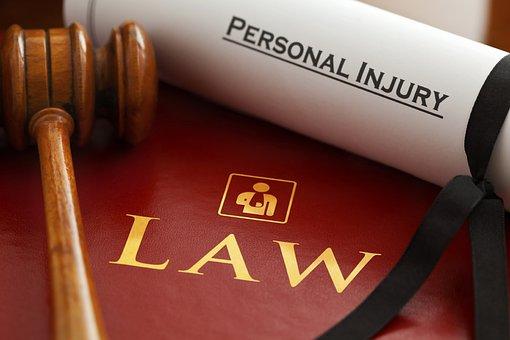

Illinois law allows recovery of various types of damages in wrongful death cases. Let me break down what compensation you can pursue.
This is usually the biggest component. Your loved one would have continued earning income and benefits for the rest of their expected working life. We calculate what that's worth in today's dollars.
This includes salary, bonuses, health insurance, retirement contributions, and other benefits. If your loved one was the primary breadwinner, this can be substantial—potentially millions of dollars for a young person with decades of earning potential ahead.
Expert economists help establish these figures based on your loved one's age, health, education, earning capacity, and expected career trajectory.
Your loved one would have accumulated wealth and assets throughout their lifetime and left them to you. Death robbed you of that inheritance. That's compensable.
Bills incurred trying to save your loved one's life before they died. Emergency room treatment, surgery, hospitalization, ambulance transport—all of it counts.
Funerals are expensive. These costs are recoverable.
This is the daily presence and relationship you shared with your loved one. The conversations. The laughter. The comfort of having them in your life.
Money can't replace that. But Illinois law recognizes this loss deserves compensation.
Particularly when a parent or spouse dies. You've lost someone who guided you, advised you, helped you make decisions.
For children who lose parents, this loss affects their entire lives—graduations, weddings, grandchildren they'll never meet.
The emotional suffering your family endures. The pain of loss. The trauma of how they died.
For surviving spouses, this means loss of the marital relationship—companionship, affection, intimacy. The partnership you built together.
Illinois courts recognize these intangible losses deserve significant compensation. There's no cap on non-economic damages in wrongful death cases.
In cases involving particularly egregious conduct—drunk driving, intentional acts, gross negligence—Illinois law allows punitive damages.
These damages go beyond compensating your family. They punish wrongdoers and deter similar conduct.
I pursue punitive damages aggressively when the conduct warrants it. Not just for your family, but to prevent this from happening to other families.
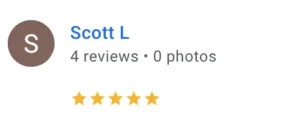
Illinois gives you two years from the date of death to file a wrongful death lawsuit.
Two years might seem like a long time when you're grieving. It's not.
Here's the thing: if you miss this deadline, you lose your right to pursue compensation. Forever. It doesn't matter how strong your case is. Doesn't matter how badly you need the money. Doesn't matter if everyone agrees the death was preventable.
Miss the deadline, and it's over.
There are some exceptions:
But don't count on exceptions. They're narrow and complicated.
Here's why you shouldn't wait:
Evidence disappears. Security footage gets erased. Witnesses forget details or move away. Documents get lost. The accident scene changes.
Memories fade. What witnesses remember clearly today becomes fuzzy months later.
Building strong cases takes time. I need to investigate, gather evidence, consult experts, identify all liable parties and insurance sources. This doesn't happen overnight.
The sooner you call me, the better positioned we are to build a compelling case and maximize your recovery.
Don't wait until the deadline approaches. Call me now.
Find Out What YOUR Case Might Be Worth...for free.
A lot of families get confused about the relationship between criminal prosecutions and wrongful death lawsuits. Let me clear this up.
Criminal cases are prosecuted by the state—the Cook County State's Attorney or other prosecutor. They focus on punishing wrongdoers through jail time, fines, or probation.
The state has to prove guilt "beyond a reasonable doubt"—a very high standard. Your family plays a limited role in criminal proceedings. And even if there's a conviction, you receive no financial compensation through the criminal case.
Wrongful death lawsuits are civil actions your family brings to obtain financial compensation. The burden of proof is lower—"preponderance of the evidence," meaning more likely than not.
Your family controls the lawsuit and directly benefits from any settlement or verdict. These cases focus on compensating your loss rather than punishing the wrongdoer (though punitive damages can do both).
Here's what's important to understand:
You can pursue a wrongful death claim regardless of whether criminal charges are filed.
Even if criminal charges result in acquittal, you may still win in civil court because of the different burden of proof. Remember O.J. Simpson? Acquitted in criminal court, found liable in civil court.
Conversely, a criminal conviction doesn't guarantee you'll win your civil case, though it certainly helps prove liability.
As your attorney, I coordinate with prosecutors when criminal cases are pending. I use criminal proceedings to support your civil case while maintaining your family's independent legal action.
Successful wrongful death litigation requires thorough investigation, compelling evidence, and skilled advocacy. Let me walk you through my approach.
The moment you hire me, I start investigating.
I obtain police reports, medical records, autopsy reports, and coroner's findings. I visit accident scenes to document conditions before things change. I interview witnesses while memories are fresh. I consult with experts in relevant fields—accident reconstruction, medicine, economics, whatever the case requires.
I identify all potentially liable parties. Sometimes there are multiple defendants. Sometimes there are parties you wouldn't think to sue but who bear partial responsibility.
Time is critical. Evidence disappears fast. I don't waste a minute.
Expert witnesses provide crucial testimony in wrongful death cases.
Medical experts explain injuries and causes of death. They testify about whether proper medical care would have prevented the death.
Accident reconstruction specialists recreate crash scenes. They use physics, engineering, and forensics to show exactly how accidents happened and who's at fault.
Economic experts calculate lifetime earnings losses. They consider education, career trajectory, promotions your loved one would have received, wage growth over time.
Vocational experts assess earning potential and career paths.
I work with highly qualified experts throughout Illinois to build cases that insurance companies and juries can't ignore.
To win your case, I need to prove:
One: The defendant owed your loved one a duty of care. Drivers have a duty to drive safely. Doctors have a duty to provide competent medical care. Property owners have a duty to maintain safe premises.
Two: The defendant breached that duty through negligent or wrongful conduct. They did something they shouldn't have done, or failed to do something they should have done.
Three: This breach directly caused your loved one's death. There's a clear connection between their negligence and the death.
Four: Your family suffered damages as a result. You've experienced financial losses and emotional harm.
Different cases involve different liability theories, but the basic framework is the same. As your attorney, I gather the evidence necessary to prove each element.
Thoroughly documenting your family's losses is essential to maximizing compensation.
I gather financial records showing your loved one's income and benefits. I document the relationship and dependence family members had on the deceased. I obtain statements from family and friends about your loved one's role in your lives. I compile evidence of medical and funeral expenses.
I handle this comprehensive documentation while you focus on grieving and supporting your family through this impossible time.
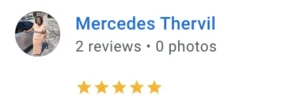
Let me be blunt: insurance companies say sympathetic things, but they prioritize profits over your family's needs.
I've been doing this long enough to know every trick they use. Let me walk you through them.
Insurers often make quick, low offers shortly after death. They're hoping grief-stricken families will accept inadequate compensation before talking to attorneys.
They know you're vulnerable. You're grieving. You're stressed about money. You're not thinking clearly.
They're counting on that.
These offers rarely account for lifetime earnings losses, future damages, or the full value of non-economic losses. They're designed to close your case cheap.
Once you accept and sign a release, you can never get more money. Even if you later realize the settlement was inadequate. Even if your financial situation becomes desperate. You get one shot at compensation.
Don't take the first offer. Don't even consider it without talking to me first.
Insurance companies may claim their insured wasn't at fault. They'll argue your loved one was partially or fully responsible for their own death.
In Illinois, if your loved one was more than 50% at fault, you can't recover anything. If they were less than 50% at fault, you can still recover, but damages are reduced by their percentage of fault.
Insurance companies try to inflate your loved one's fault to reduce their payout.
I counter these arguments with strong evidence and expert testimony proving the defendant's negligence caused the death.
Insurers routinely undervalue claims by:
They have their own experts who will testify your case is worth less than it is.
That's why I have my own experts who establish the true value of your loss.
Insurance companies know families face financial pressures after losing a primary income earner.
They use delays hoping you'll accept low offers out of desperation. They request unnecessary documentation. They take months to respond to communications. They drag out negotiations hoping you'll settle for less.
I don't let them get away with it. I keep cases moving forward and apply pressure to get you fair compensation quickly.
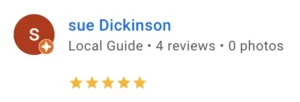
Understanding the legal process helps reduce anxiety during an already difficult time. Let me walk you through what happens.
We start with a free, confidential consultation. No obligation. No pressure.
I listen to your story. I review available evidence. I explain your legal rights and options in plain English. I answer all your questions.
You decide if you want to hire me. Your choice.
Either way, we end up as friends. That's how I do things.
Once you hire me, I immediately begin investigating. Gathering evidence. Consulting experts. Identifying all liable parties and insurance coverage sources.
This phase typically takes several weeks to months, depending on case complexity. I keep you informed every step of the way.
After thorough preparation, I file your wrongful death lawsuit in the appropriate Illinois court—usually Cook County Circuit Court.
Filing initiates formal legal proceedings and ensures we meet all deadlines.
Discovery involves both sides exchanging information through:
Discovery can take months but is essential to building strong cases. I use discovery to uncover evidence the other side doesn't want to reveal.
Most wrongful death cases settle before trial. That's good—it gets you compensation faster and avoids the stress of trial.
I negotiate aggressively to obtain maximum compensation. But you make all final decisions about settlement offers. I provide guidance and recommendations, but settlements require your approval.
I won't let you accept an unfair offer. But I also won't force you to trial if you want to settle. It's your case, your decision.
If settlement negotiations fail to produce fair offers, I take your case to trial.
I present compelling evidence to juries. I call expert witnesses. I cross-examine defense witnesses. I deliver persuasive arguments seeking full justice for your family.
I've tried cases. I've won. And I'm ready to do it again if that's what it takes.
Throughout this entire process, I keep you informed, explain legal procedures in plain language, and provide compassionate support during your family's darkest time.
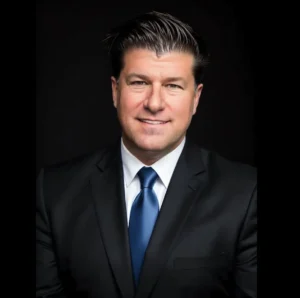
Look, I'm not going to give you some slick sales pitch. That's not who I am.
But I want you to understand what makes my practice different.
When I was nine years old, my father was catastrophically injured at work. He was a truck driver, a Teamster, and the toughest guy I knew.
That injury changed everything for our family.
His case took 17 years to resolve. Seventeen years of being run around by insurance companies and defense lawyers. And at the end of those 17 years, his own lawyer sued him for more fees.
We grew up poor after my father couldn't work anymore. I watched my family struggle. I watched the legal system fail us.
That's why I became a personal injury lawyer. To make sure what happened to my father never happens to anyone else.
I know what it's like to be the family member of someone who's been hurt. The fear. The uncertainty. The financial stress. The frustration with insurance companies that don't care and lawyers who are more interested in their fees than your wellbeing.
That experience shaped who I am as a lawyer. It's why I treat every client like family. It's why I return phone calls. It's why I explain things in plain English instead of hiding behind legal jargon. It's why I fight so hard.
Your fight is my fight. That's not just a slogan I put on my website. It's the truth.
Most lawyers do the bare minimum for continuing education. They show up to a seminar once a year, sit in the back, check the box, and go home.
Not me.
I've spent over $100,000 and thousands of hours on advanced training that most lawyers never even consider.
I'm a graduate of the world-renowned Gerry Spence Trial Lawyer's College. I'm a graduate of the prestigious "The Edge" program. Not one in 10,000 lawyers has completed the training I have.
Why did I invest all that time and money?
For one reason: so you get the very best, most cutting-edge and effective representation possible.
When I'm in a negotiation or courtroom, insurance companies and defense lawyers know I've trained with the best trial lawyers in the country. They know I'm not bluffing when I say I'll take a case to trial. They know I have the skills to win.
That knowledge makes them more likely to offer fair settlements. And when they don't, I'm fully prepared to take your case to trial and win.
Big personal injury firms handle hundreds or thousands of cases at once. When you call, you'll deal with paralegals, case managers, junior associates—everyone except the actual lawyer whose face is on the billboard.
I do things differently.
When you call my office, you talk to me. When you have questions, I answer them. I personally handle your case from start to finish.
I limit my caseload so every family gets real, personal attention. You'll have my cell phone number. I'll return your calls promptly. You'll never wonder what's happening with your case because I'll keep you informed every step of the way.
Some people want the big firm with the fancy TV commercials. That's fine. Those firms do good work.
But if you want a lawyer who actually knows your name, remembers the details of your case, and genuinely gives a damn about what happens to your family, call me.
Some lawyers settle cases cheap and fast because they want to move on to the next one. It's a volume business for them.
That's not me.
I don't settle for less than your case is worth. When insurance companies make unreasonable offers, I'm fully prepared to take cases to trial.
My willingness to actually try cases gets us better settlements because insurance companies know I'm serious. They've seen me in court. They know I'm not afraid of trial.
Insurance companies respect lawyers who actually try cases. When they know you've hired an attorney who will go to trial if necessary, they take negotiations more seriously and make better offers.
Let me be super clear about this because I want you to understand there's absolutely no financial risk in hiring me.
You pay nothing upfront. No retainer. No hourly fees. Nothing out of pocket.
I work on contingency. That means I only get paid if we win your case through settlement or verdict.
I even advance all case expenses. Filing fees. Expert witness costs. Investigation expenses. Medical record retrieval fees. Court costs. Deposition expenses. Everything it takes to build and prove your case.
If we don't recover money for you, you owe me nothing. Not a penny. Not for my time, not for the expenses I advanced, nothing.
This arrangement ensures every family can afford experienced representation regardless of their financial situation. You shouldn't have to choose between getting a good lawyer and paying your bills.
In personal injury cases, my fee is 33⅓% if we settle before trial, or 40% if we have to go to court. These are standard rates.
Pretty good deal, right? (Yes, that's my sense of humor creeping in.)
Tragedies don't follow business hours. Your loved one may have died on a weekend, holiday, or late at night.
You can call me any time—24 hours a day, 7 days a week, 365 days a year.
Middle of the night? Weekend? Holiday? Doesn't matter. If you need to talk, I'm here.
Quick response matters because evidence disappears fast. Security footage gets erased. Witnesses forget details. Accident scenes change.
The sooner I get involved, the better positioned we are to protect your rights and build a strong case.
Hiring Scott was one of the best moves I have made in my life. Scott is a down to earth person and attorney. Scott is a 5 star first class act who really knows his stuff. The Judge said his presentation was one of if not the best he had ever seen. Take my advice, hire Scott I’m sure you’ll be 200% satisfied I was.

Scott not only cares about the case, but he truly cares about his clients and that makes him the best lawyer I have ever met and hired! He won my case! He is thorough in everything he does. I highly recommend Scott, and will always refer him to family and friends.

I hired Scott DeSalvo upon a friend’s recommendation. His office kept me informed of developments as they happened, and I felt the settlement reached was fair considering my injuries. I would highly recommend Scott DeSalvo to represent your personal injury case.

My practice serves families throughout the Chicago metropolitan area—all Chicago neighborhoods from Rogers Park to Beverly, and suburban communities across Cook County, DuPage County, Lake County, and Will County.
Whether your loved one's death occurred in the city or suburbs, I'm here to help you pursue justice.
My office in Chicago—right in the heart of the legal district, across from the courthouse. But I'll meet you wherever is most convenient for you. Your home. A local coffee shop. Anywhere you feel comfortable.
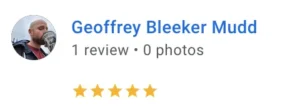
Look, I'm not going to pressure you. I never chase clients. I never hustle and harass people.
We talk like friends.
But if you've lost someone you love, you deserve to know your rights. You deserve to know if you have a case. And you deserve to know what it might be worth.
Here's how it goes when you call:
Step 1: You call (or I can call you at a time that works for you).
Step 2: I listen to your story. Really listen. No interrupting, no judging, just listening.
Step 3: I answer your questions and address your concerns. Plain English, no legal jargon.
Step 4: I'll tell you honestly if I think you have a case and what I can do to help.
Step 5: You decide whether to hire me. Your choice. Zero pressure.
Step 6: Either way, we end up as friends.
Sound good?
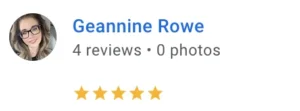
You can reach me 24 hours a day, 7 days a week, 365 days a year at (312) 500-4500.
Or if you're not quite ready to talk, visit desalvolaw.com and tell me about your situation. I'll get back to you quickly.
Don't let negligent parties escape responsibility for taking your loved one from you. Don't let insurance companies convince you to accept less than your family deserves.
Nothing will bring your loved one back. But holding the responsible parties accountable provides some measure of justice and ensures your family receives the financial compensation you need to move forward.
I look forward to hearing from you.
Your fight is my fight. Let's get you the justice and compensation your family deserves.
About Scott DeSalvo
When I was nine, my father was catastrophically injured at work. He was a truck driver, a Teamster, and the toughest guy I knew.
That injury changed everything for our family.
His case took 17 years to resolve. At the end, his own lawyer sued him for more fees.
We grew up poor once my father could no longer work.
So I worked through high school and put myself through college and law school so that what happened to my family NEVER happens to anyone else.
I've dedicated my career—honestly, my whole life—to helping injured people get the respect and compensation they deserve.
I'm a graduate of the Gerry Spence Trial Lawyer's College and "The Edge" program. I've spent over $100,000 on advanced training most lawyers never consider. Not because I had to, but because I wanted to give my clients the absolute best representation possible.
I only represent injured people—never insurance companies or defense lawyers. I take cases other lawyers turn away. And I fight like hell for every client.
Because your fight is my fight.
Call me at (312) 500-4500 any time, day or night. Let's talk about your case.
Find out if you have a good case, or a tough one...for free!
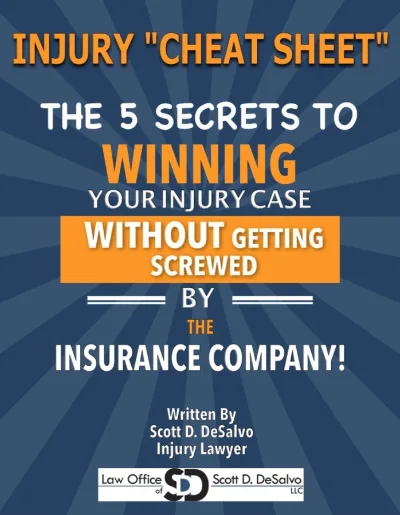
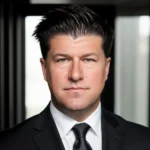
Scott DeSalvo founded DeSalvo Law to help injured people throughout Chicago and surrounding suburbs. Licensed to practice law in Illinois since 1998, IARDC #6244452, Scott has represented over 3,000 clients in personal injury, workers compensation, and accident cases.
No Fee Unless You Win | Free Consultation | 24/7 Availability Call or Text: (312) 500-4500
>>Read More
Main Office:
1000 Jorie Blvd Ste 204
Oak Brook, IL 60523
New Cases: 312-500-4500
Office: 312-895-0545
Fax: 866-629-1817
service@desalvolaw.com
Chicago and Other Suburban Offices
By Appointment Only